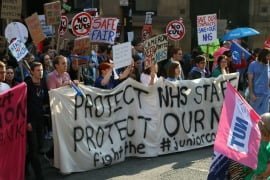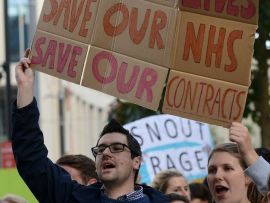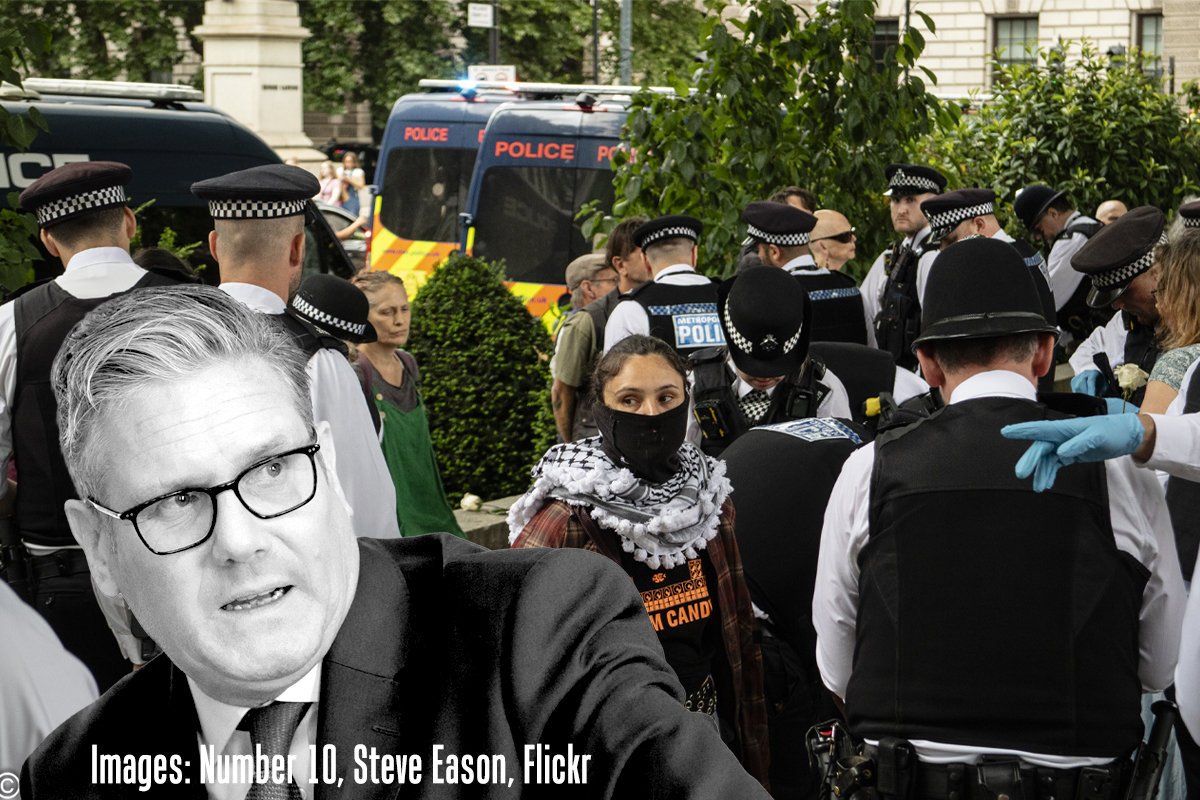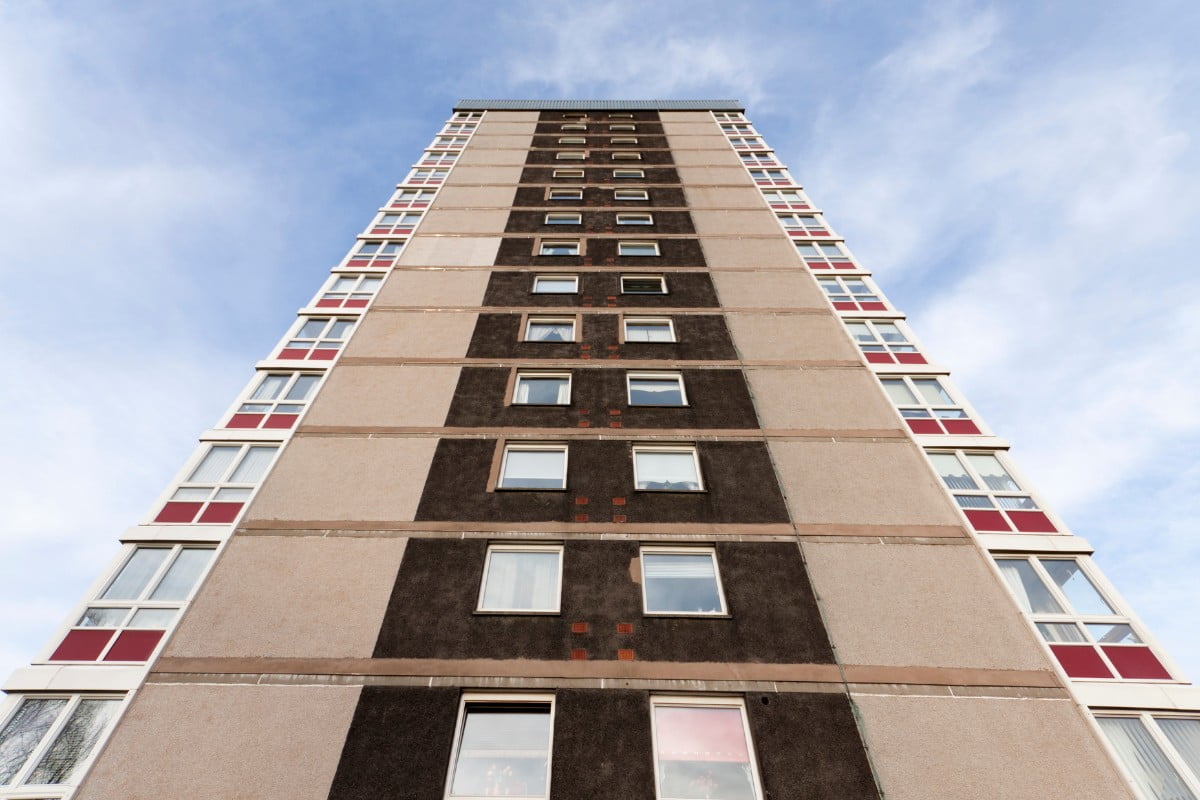In recent weeks, thousands of junior doctors have been drawn into the political arena and joined the class struggle, as they fight back against Tory attacks to their terms and conditions and organise to defend the NHS. Protect the NHS! Support the junior doctors!
“It is not the consciousness of men that determines their being, but, on the contrary, their social being that determines their consciousness.”- A Contribution to the Critique of Political Economy Karl Marx (1859)
The vast majority of doctors make every effort to provide the best possible care for their patients, which includes staying beyond the end of their shifts or not taking required breaks. In recent weeks, however, a whole swathe of junior doctors have been drawn into the political arena and, perhaps without realising it, have also joined the class struggle against the sequelae of an ailing capitalist system.
Most doctors I know would class themselves as being placed around what is traditionally perceived to be the political “centre”, with perhaps an equal number dispersing to a moderate degree in both right and left directions. A small, but perhaps not negligible number, would consider themselves to be further left and perhaps consider themselves to be socialist. Now, however, a rapid process of radicalisation is taking place amongst junior doctors.
Joining the class struggle
Following news that the government plans to impose an unfavourable contract upon junior doctors from August 2016, many have been roused into political activity: engaged in discussing the new contracts in person and on social media politics; writing to MPs; organising marches; and contacting the media to explain how they will be affected by the new contracts. Social media has exploded with discussion about the proposed contract, and this is the first time I have seen some of my colleagues and friends express any sort of political opinion, let alone plan campaigning actions.
For doctors with families, mortgages, and having to pay hundreds or even thousands in professional fees, medical indemnity insurance and professional examinations fees, a pay cut of up to 30% would be disastrous. Current medical students are likely to be encumbered with tens of thousands of pounds of debt post qualification. A study published a few months ago by University of Birmingham academics found that medical graduates in 2014 could expect to have to pay between £64,000 and £80,000 for tuition fees and maintenance during the course of their degree which is a debt some may never be able to repay in full. For more details on the proposed contract, please see here.
A total of 5,451 doctors reportedly joined the BMA in the days between 26th September and 5th October, with junior doctors comprising 80% of these new members. The surge in membership naturally corresponds with junior doctors wanting to have a say in the upcoming ballot on industrial action. However, I believe that the motivation behind joining the BMA runs deeper. Junior doctors, BMA members or not, are eagerly wanting to join the fight against a contract that would disadvantage both the care they provide to patients as well as their own working conditions and renumeration. Previously politically inert and inactive layers are being brought into the struggle.
Social media would indicate that there is a push from below on the BMA leadership to fight the contract and with all its strength. As the BMA junior doctors’ representative for my hospital trust, I have found this to be the case as colleagues are suddenly more keen to find out about the new contract, what the BMA is doing and what they can do to oppose it. In London a rapidly organised march on the 28th September drew 5,000 doctors.
Bosses’ plans backfire
NHS employers had planned to hold a series of meetings around the country from the end of September over the following weeks in order to explain to doctors themselves what the new contract would entail and hopefully diffuse some of the pulsating anger. However, NHS employers rapidly cancelled the whole UK wide roadshow plan at the end of September after Jeremy Hunt invited the newly elected chair of the BMA’s Junior Doctors’ Committee, Johann Malawana, to further discuss the contracts.
The rapid cancellation led to further anger from doctors who were planning to attend in large numbers and hold the government representatives to task with tough questions. In response, Dr Johann Malawana commented:
“The BMA’s junior doctor committee has been clear about what it needs to hear from the government and NHS Employers to bring us back to the negotiating table. We will be continuing with our action unless the government themselves can give us the absolute assurances we seek on behalf of the doctors we represent.
“Our members and all junior doctors feel angry and let down by how they have been treated and have had enough of being treated in such an inappropriate way. The hundreds of junior doctors tonight wanted to make their views known will be left feeling further disappointment at the way they have been treated.”
Around the same time, an interesting letter was leaked onto social media by final year medical students, who had received an email which many took as having subtle undertones warning them to be “professional” and implying that they should concentrate on their exams rather than be involved in protesting against the implementation of the new contract. Very similar emails were circulated by multiple medical schools. One of which reportedly included:
“The priority for medical students is to get on with your studies and pass the assessments. A medical degree carries with it many opportunities. It would be unwise to put this at risk. Whatever the present difficulties, the public continues to respect work carried out by doctors. Once qualified you will be in a strong position to contribute to the enhancement of the role of doctors in the NHS and to do so in a manner that benefits patients.”
As one medical student, quoted in a Guardian article, commented:
“This email says more about medical schools’ concern for reputation, and the desire to look polished, than producing conscientious doctors. I happen to believe that the role of doctor includes being an advocate, at a patient and population level. Knowing what is best for patient safety is not an academic exercise, it needs to be practiced clinically and fought for when threatened.”
However, far from stifling discussion, the letter led to further irritation and dismay amongst doctors and the Medical Schools Council, which admitted to being behind the letters, denied that these were supposed to carry an intimidating message and, according to a Guardian article, described “the wording as regrettable”.
Protect the NHS! Support the junior doctors!
 Junior doctors are considering leaving the country. In that particular respect, they are a privileged group of workers who are more easily able to take their labour elsewhere to sell in more favourable conditions. A ballot on industrial action will take place in the next few weeks. Fortunately. thus far, coverage in the media, left and right, has generally taken a sympathetic slant to the plight of junior doctors.
Junior doctors are considering leaving the country. In that particular respect, they are a privileged group of workers who are more easily able to take their labour elsewhere to sell in more favourable conditions. A ballot on industrial action will take place in the next few weeks. Fortunately. thus far, coverage in the media, left and right, has generally taken a sympathetic slant to the plight of junior doctors.
The BMA is one of few unions not affiliated to the Trades Union Council and it is a sign of the times to see its ranks swell and its members politicised and brought into the class struggle. It is inspiring to see so many taking the lead and independently organising resistance, marches, and petitions. Hopefully this will bring doctors closer to other healthcare workers and to the unions in general and help to bring about a greater change in consciousness.
Industrial action in defence of our patients and working conditions is just the first essential step along a long journey. It is also necessary to join with other health worker unions fighting against the threat of further austerity, and it is crucial doctors realise that the crises they are currently battling against are a consequence of a flawed capitalist system which puts profit before people. Such crises beg the questions of why healthcare workers who operate at the coalface can’t be involved in the running, planning and allocating of resources of the health service, rather than giving these responsibilities to external managers, especially those who have no background in health.
Strikes and industrial action to protect patients and working conditions are vital. But these are only a means to an end in the struggle for common ownership, self respect and socialism.






